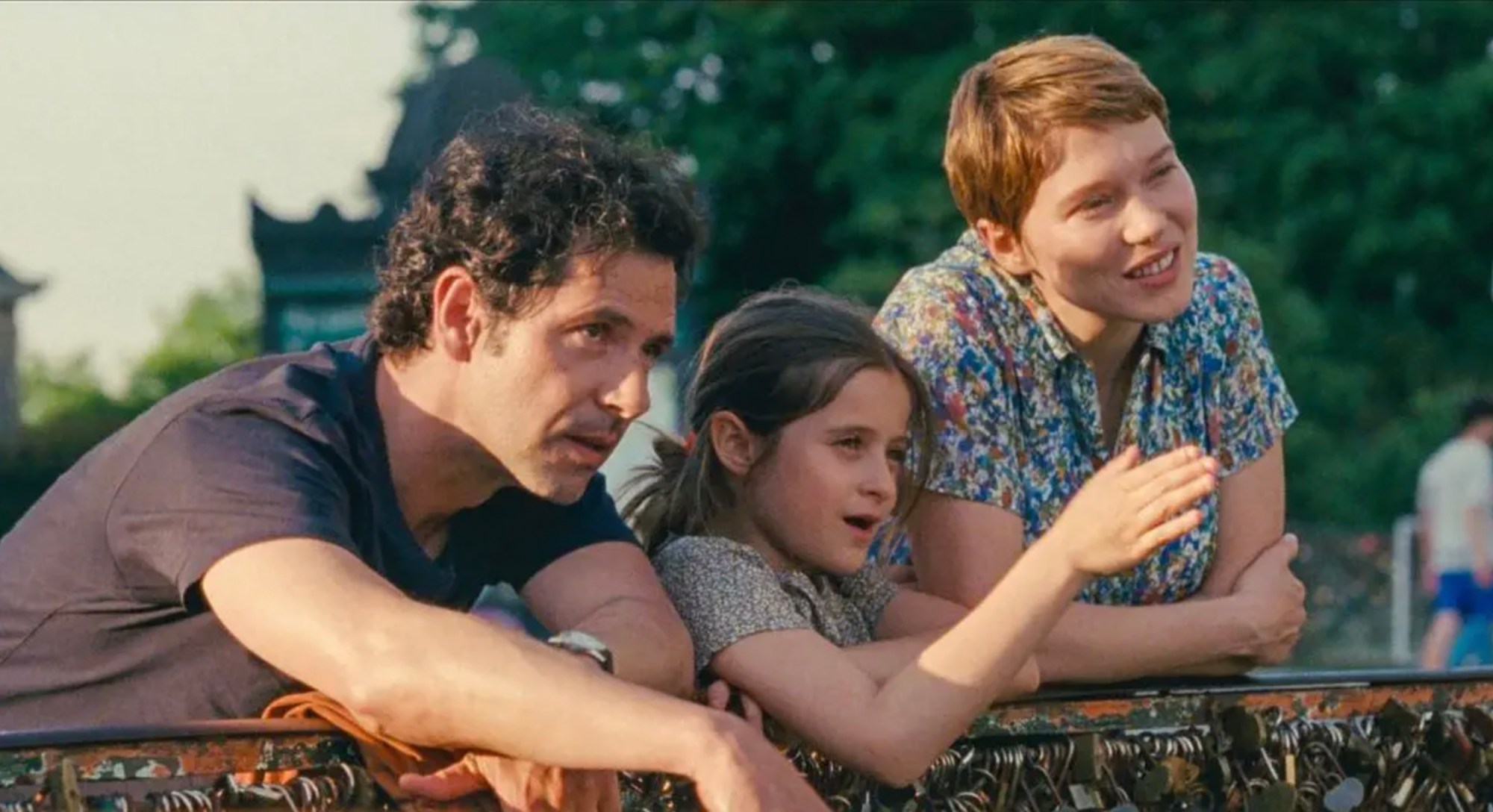
- Festivals
Léa Seydoux and Director, Mia Hanson-Løve Pull Back the Veil on “One Fine Morning”
“Sometimes opposite things happen at the same time in one’s own life, like a strange morning – and at the same time, a rebirth,” says writer/director Mia Hanson-Løve (Things to Come, All is Forgiven) on the impetus of One Fine Morning (Un Beau Matin) which premiered in the Director’s Fortnight at the 75th Cannes Film Festival. Speaking after the screening, she explained the very personal narrative of the film which stars Léa Seydoux, Nicole Garcia and Pascal Greggory. “(The film) was also a way to express, to do something with the experience of illness that I lived through.”
The film captures a woman in transition. Seydoux is Sandra Kienzler, raising a daughter alone, caught, as so many women are, between giving herself to her child and taking care of her ailing father who is slipping away from a neurodegenerative disease, while his body remains fully functional. Driven by others’ needs, she happens upon a past love (Melvil Poupaud), now married. Their friendship feeds her. Here is someone who sees her not as an adjunct, but as a person. Passion flares and her guilt and need for an affair play out as we witness a woman being pulled apart by life, love and herself.
Seydoux first read the script in lockdown and identified with her character’s isolation and need for individual connection. “It came as a big relief, a lot of solace, for me to read the script. It was a really strange moment. To read this, I was really touched and moved.” The character held appeal. “It was the first time that I had the opportunity to play a normal woman, if you can say that.” She shrugs, seeking to clarify. “Someone that the audience would relate to immediately. She has this simplicity about her and also this authentic emotion.”
That drive to emerge from behind the many labels – mother, daughter, caregiver, translator – and be seen as a person, is palpable on the screen, and the Spectre star asserts it as the reason for taking on the role. “It felt like we were at the heart of feelings, and I accepted right away.”
At heart, the film is a character study of people overcoming obstacles, personal and worldly. It’s about the mark we leave on the world, the people we touch, and what remains when we are gone.
The benefit of shooting the film over two seasons interrupted by COVID serves the script and actors. Hanson-Løve explains. “This was shot over a very long period of time. It was not a choice really. I had two seasons to shoot, but we also had COVID, so we had to interrupt the shoot a lot of times. But we never lost focus. It was a demanding shoot because we started shooting in June last year and we were still shooting scenes this February.”
As much of the film is shot in the depressing environment of old-age care facilities with their stark beige and green backdrop, the director chose to shoot in 35 mm. “As a spectator, I don’t suffer from films that are not shot in 35 mm. But as a filmmaker, I feel like it gives that much material to the film. I just relate to it more in my imaginary.” She continues, “Since I knew that I was going to shoot in settings that were not the prettiest places, I thought I would give them more soul.”
The soul of the film is carried by Seydoux. Getting into this character took a slow approach. “It always feels a bit abstract when you’re reading a script for the first time to have a sense of how you are going to embody the character, so I read it several times. It’s a really slow process.”
Other aspects of film-making help create the character for the French actress. Beyond “reading (the script) several times, the choice of costumes helps a lot, the read-through with the other actors. It’s a slow transformation, which is a bit of a miraculous process in a way.”
“When I start playing a character, I feel like I am her. I have such empathy for this character. In this case, it was me as a life in a way.” Seydoux fleshes out her process. “I had a certain responsibility to transcribe her emotions very faithfully. When I act, I try to express thoughts, the thoughts of the director, and in this case, it was also her own life.”
The director affirms the sentiment. “This film has a more intricate connection with my very first feature, All Is Forgiven, that was here at Cannes. I always make films that are very personal with strong autobiographical notes in them, so it’s natural to think that since this character is closer to me in age and with my father’s illness that I could feel closer to her. But I feel like I have as much empathy with all my characters in the film and also in my other films. Even in my film Eden, where it was a young man, I relate just as much.”